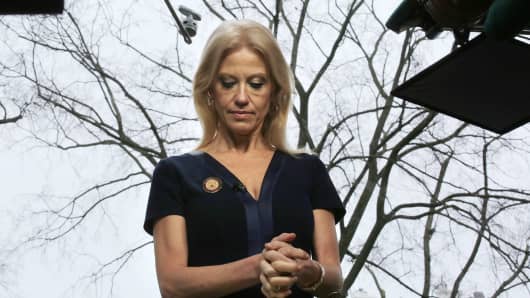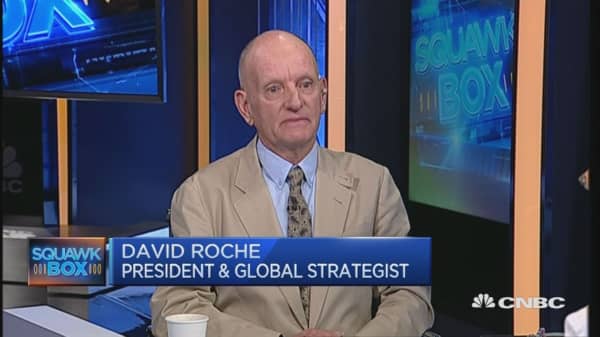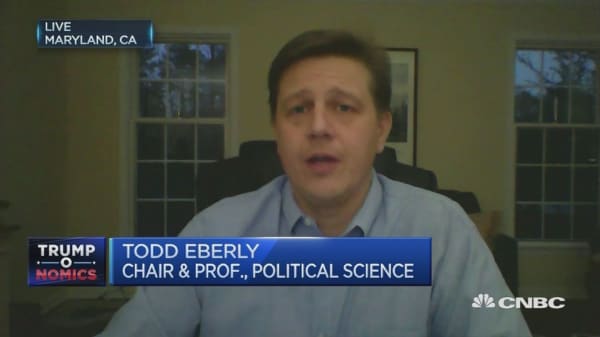This article is part of a series on the "Future of politics." The series investigates the "Trump effect" on policy, political parties, future candidates, their campaign style and the overall political environment in 2017 and beyond. See the whole series here.
Those side-by-side inauguration photos you can see with your own eyes? A fiction perpetrated by the liberal media.
The popular vote? One giant fraudulent lie.
As a communications consultant, I'm pretty excited about this brave new world, where facts are fungible and reality is optional. My assumption has always been that when we work with a client, we have to figure out how to create an effective message based on at least a kernel of truth. We can't just say something, assuming people will believe our words over what they can see with their own eyes.
No more.
Now, we can just say stuff, and when questioned, we can offer 'Alternative Facts.' The phrase was coined by Trump Advisor Kellyanne Conway to describe inauguration audience numbers from the Trump administration that contradicted lower head count reported by the media.
Except that's not really a viable long-term communications strategy.
Enron tried it 17 years ago, and it worked for a while—until earnings cratered and the business went from "Most Admired Company" status to being synonymous with corporate fraud in record time.
More recently, Elizabeth Holmes and Theranos, the blood-testing company she founded, tried to survive using Alternative Facts, and now she's managed to do something thought to be impossible: get banned from Walgreens.
Alternative Facts just don't work for very long in the private sector. Samsung can't tell consumers that an exploding phone is a great piece of technology, your realtor can't convince you that a flooded basement is an indoor pool, Enron couldn't fool consumers into thinking higher energy prices are somehow good for their bank account, and Theranos wasn't going to change the world by manufacturing blood tests that don't work.
Unfortunately, though, Alternative Facts can have a much longer shelf life in the public sector.
For two decades multiple presidents from both parties presented a long list of Alternative Facts as justification for the Vietnam War. Kennedy's insistence that troops were merely serving as advisors, Johnson's Gulf of Tonkin incident, and Richard Nixon's claim that he did not sabotage the 1968 peace talks could all be described as Alternative Facts. Years later, the Bush administration presented evidence of weapons of mass destruction in Iraq to justify that war. That "evidence" could also be filed in the category of Alternative Facts.
Or you could also call them something else: lies.






